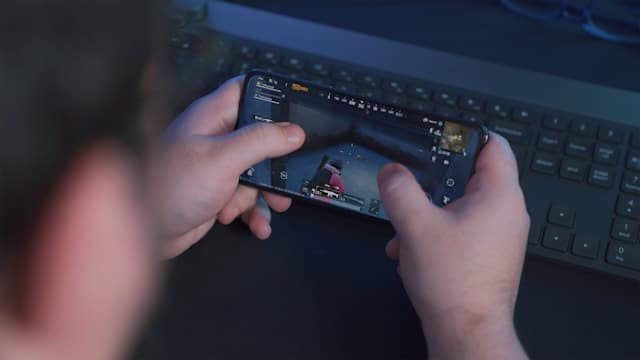What strategies can be employed to optimize game performance on older gaming consoles?

The dawn of a new era in the gaming industry is always exhilarating—with the release of next-generation consoles and high-end gaming PCs promising unrivaled gameplay experiences. But what about the older gaming consoles that have served us well over the years? Can we still extract maximum performance from them?
In this article, we'll explore the strategies to optimize your game performance on older consoles. From tweaking in-game settings to improving hardware, we’ll guide you on how to keep your older gaming system kicking for as long as possible.
A découvrir également : What techniques are essential for creating realistic character aging in simulation games?
Understanding the Limitations of Your Hardware
Before diving into the world of optimization, it's crucial to grasp the limitations of your console's hardware. This will help you understand what's feasible and what's not when we start to tweak settings.
Older gaming consoles come equipped with a set-in-stone combination of central processing unit (CPU), graphical processing unit (GPU), and random-access memory (RAM). This hardware trifecta dictates how well your console can run games.
A voir aussi : Discover sustainable gaming through our rental server options
The CPU handles the game's logic, including AI and physics, while the GPU is responsible for rendering the game's graphics. The RAM, on the other hand, serves as the bridge between the two, storing data that the CPU and GPU need to access frequently.
Knowing this, you can start to understand why your older console might struggle with newer games. These games often require faster CPUs, more powerful GPUs, and more RAM than older consoles can provide. However, don't be disheartened. There's still plenty we can do to optimize performance.
Tweaking In-Game Settings
If your console is struggling to run a game, the first thing you might want to check out is the game’s settings. You will be surprised to see how much you can squeeze out of your system with a few tweaks here and there.
Most modern games offer a variety of settings that can have a significant impact on performance. This includes graphics settings, resolution, and frame rate. Lowering these settings will often yield a significant boost in performance.
For instance, reducing the graphics quality or resolution can free up valuable GPU resources, allowing your console to render frames more quickly and thus increasing your frames per second (fps). Similarly, capping your fps can help ensure a smoother, more consistent gaming experience.
Remember, every game is different, and what works for one might not work for another. It will take some experimentation on your part to find the optimal settings for each game.
Upgrading System Software and Game Patches
Keeping your console’s system software up-to-date is another vital strategy for maximizing performance. Gaming consoles, much like computers, benefit from regular updates that often include performance improvements and bug fixes.
In a similar vein, always ensure your games are patched to their latest versions. Game developers regularly release patches that fix bugs and improve performance, especially for older consoles.
A word of caution though, ensure you have a stable internet connection before initiating the update as interruption might lead to data corruption.
Maintaining Console Health
Physical maintenance of your console can improve its performance as well. Over time, dust can accumulate inside your console, causing it to overheat and throttle its performance. Regular cleaning can help prevent this.
Your console's hard drive can also benefit from some attention. Deleting unneeded game data and defragmenting the hard drive can help improve game load times and overall performance.
Optimizing for Porting
Finally, when considering how to optimize game performance on older gaming consoles, it's important to take into account the issue of game porting.
Often, games are designed for the newest consoles or PCs and then ported to older consoles. These ports may not be as optimized as they could be, resulting in subpar performance.
In such cases, waiting for patches that improve the game's optimization or seeking community-created solutions can significantly improve performance.
Remember, optimizing an older console for better game performance is a study in patience and perseverance. It may take some time and a bit of experimentation to find what works best. But with these strategies at your disposal, you're well on your way to squeezing every last drop of performance from your aging console.
Improving Hardware for Better Performance
Understanding the limitations of your hardware is the first step towards enhancing your gaming performance. However, it is equally important to know the upgrades you can make to squeeze out the best performance from older consoles.
One significant hardware improvement you can make is upgrading your console's hard drive. In many cases, older consoles have hard drives with limited capacities and slower read/write speeds. Upgrading to a larger, faster hard drive can significantly improve game load times and overall performance.
Moreover, the graphics card plays a critical role in determining the quality of your gaming experience on older consoles. While it may be a bit challenging to upgrade the GPU on older consoles, it is possible in some cases. Upgrading to a more powerful GPU can provide a massive boost in performance, allowing you to play newer games that were previously unplayable.
Furthermore, if your console supports it, enabling game mode can also enhance performance. This mode prioritizes gaming applications, shutting down unnecessary background processes to allocate more system resources towards running the game.
Finally, if your gaming console supports it, consider increasing your console's refresh rate. A higher refresh rate can lead to a smoother gaming experience, especially for fast-paced games. However, remember to balance this with your TV's abilities. A low fps (frames per second) on a high refresh rate TV can lead to a disjointed, unenjoyable gaming experience.
While the gaming industry continues to advance at a rapid pace, older consoles still have a considerable player base. This is especially true among older adults who have grown accustomed to their consoles and the library of games they own.
Keeping an older console running smoothly requires knowledge and constant maintenance. From understanding the limitations of your hardware, tweaking game settings, and keeping your system software updated, to maintaining console health and optimizing for game porting, these strategies can help you get the most out of your older console.
In the long term, maintaining and optimizing your console can extend its life, saving you money, and providing countless hours of enjoyment. After all, the ultimate goal is to have an optimal gaming experience where you can enjoy your favorite video games without difficulties or interruptions.
Game performance is not always about owning the latest hardware but about understanding and making the best of what you have. And remember, with patience and perseverance, you can optimize your older console to provide a smooth and enjoyable gaming experience, proving that there is indeed life in the old dog yet!
